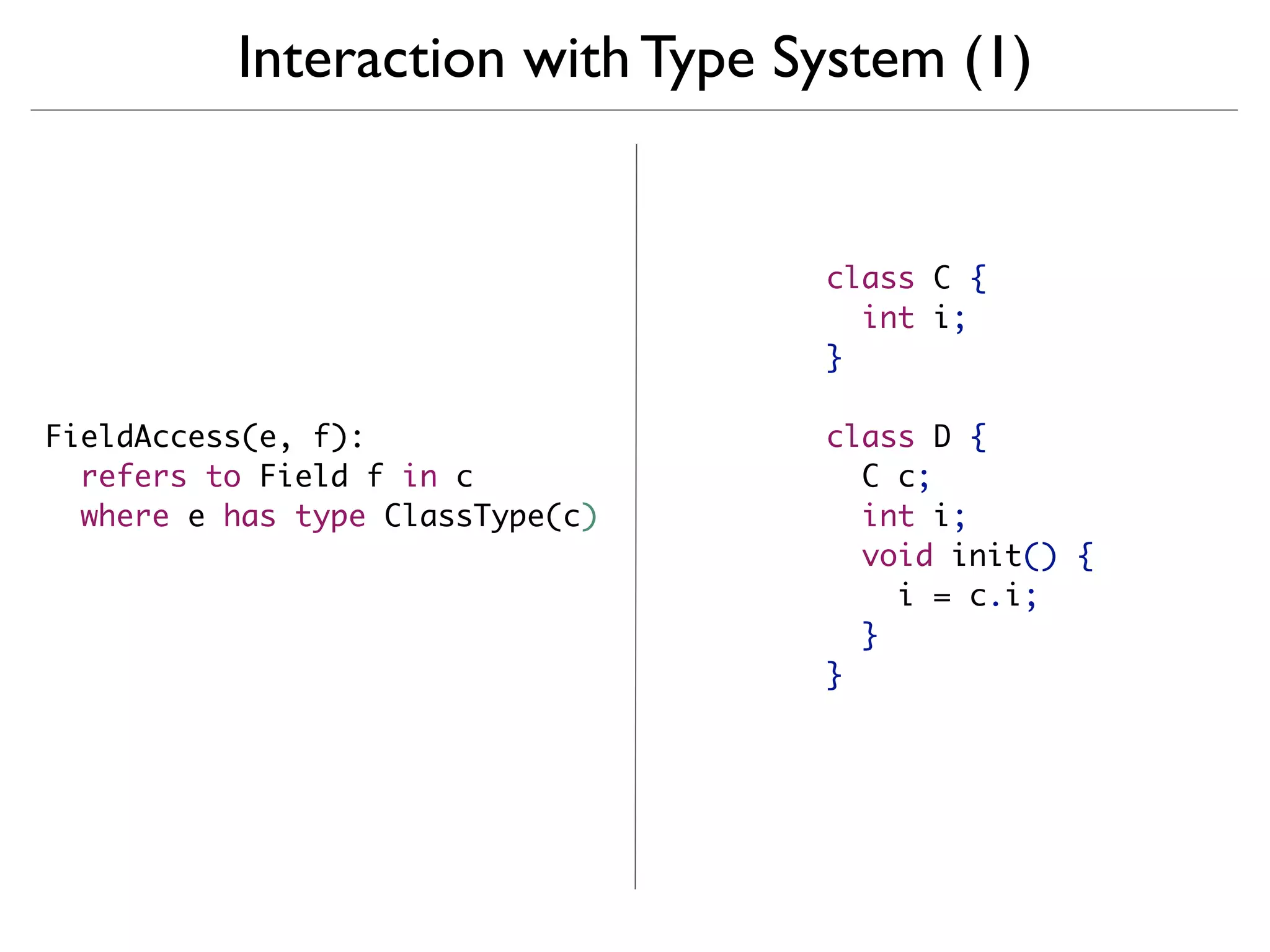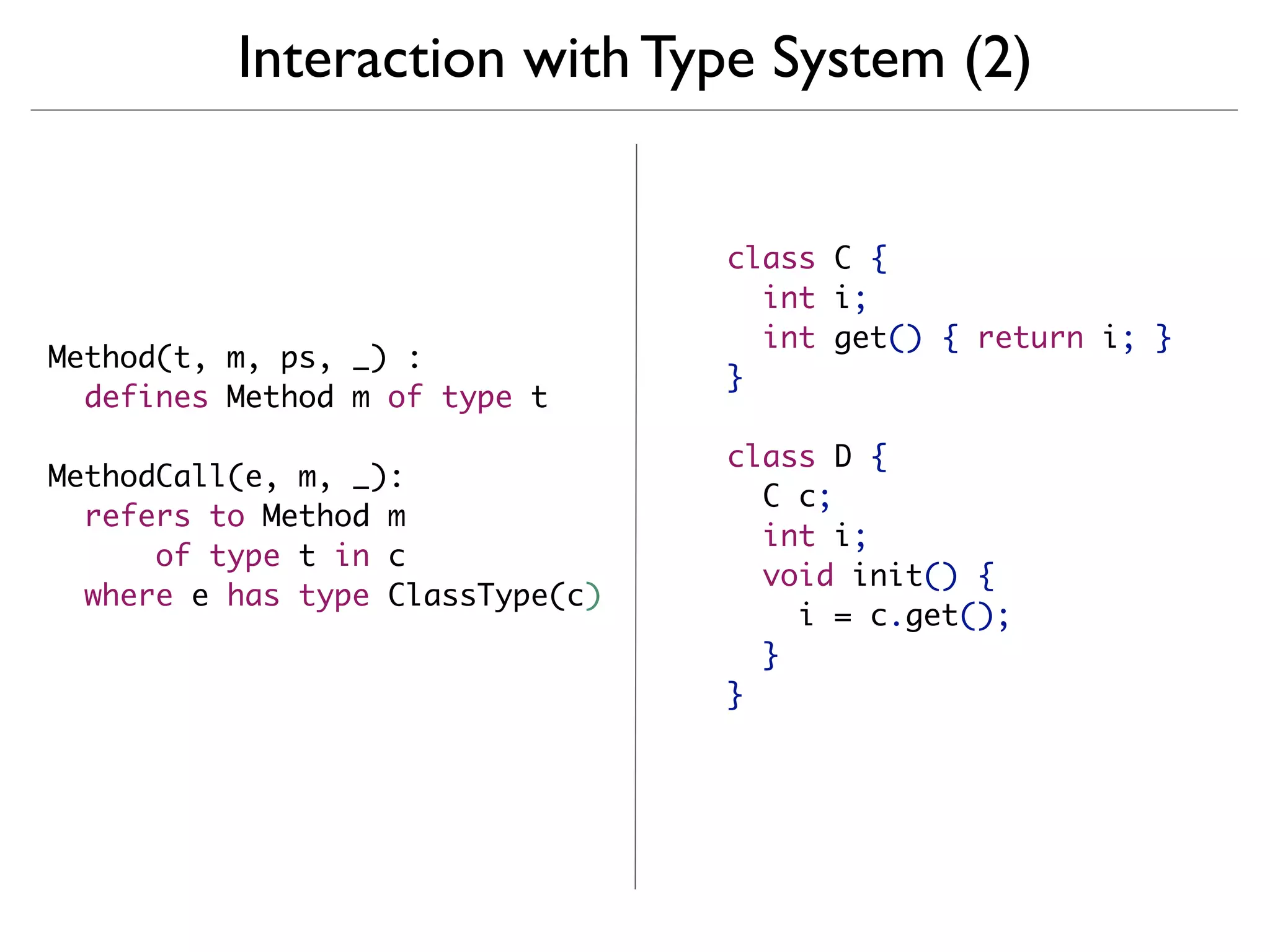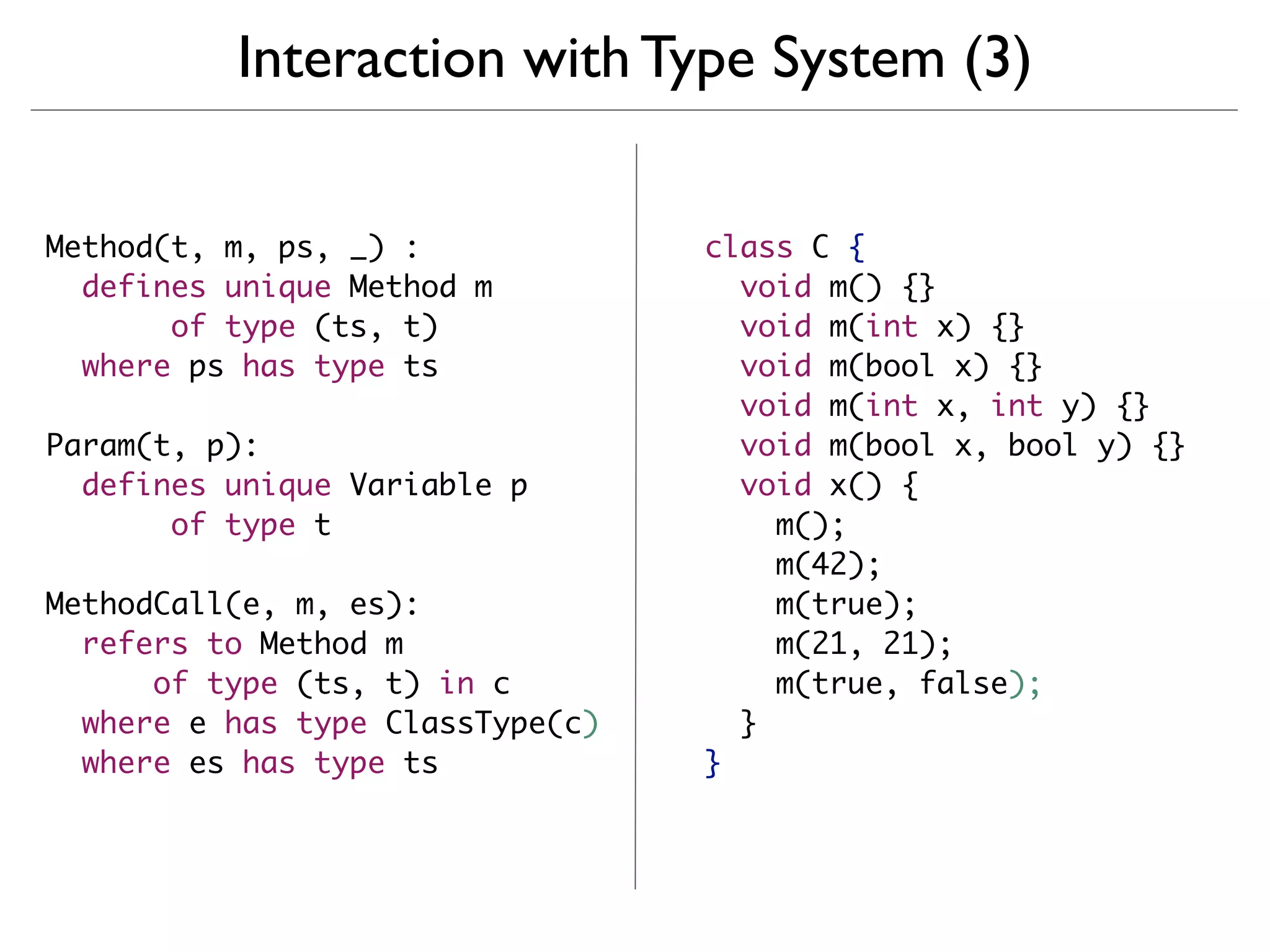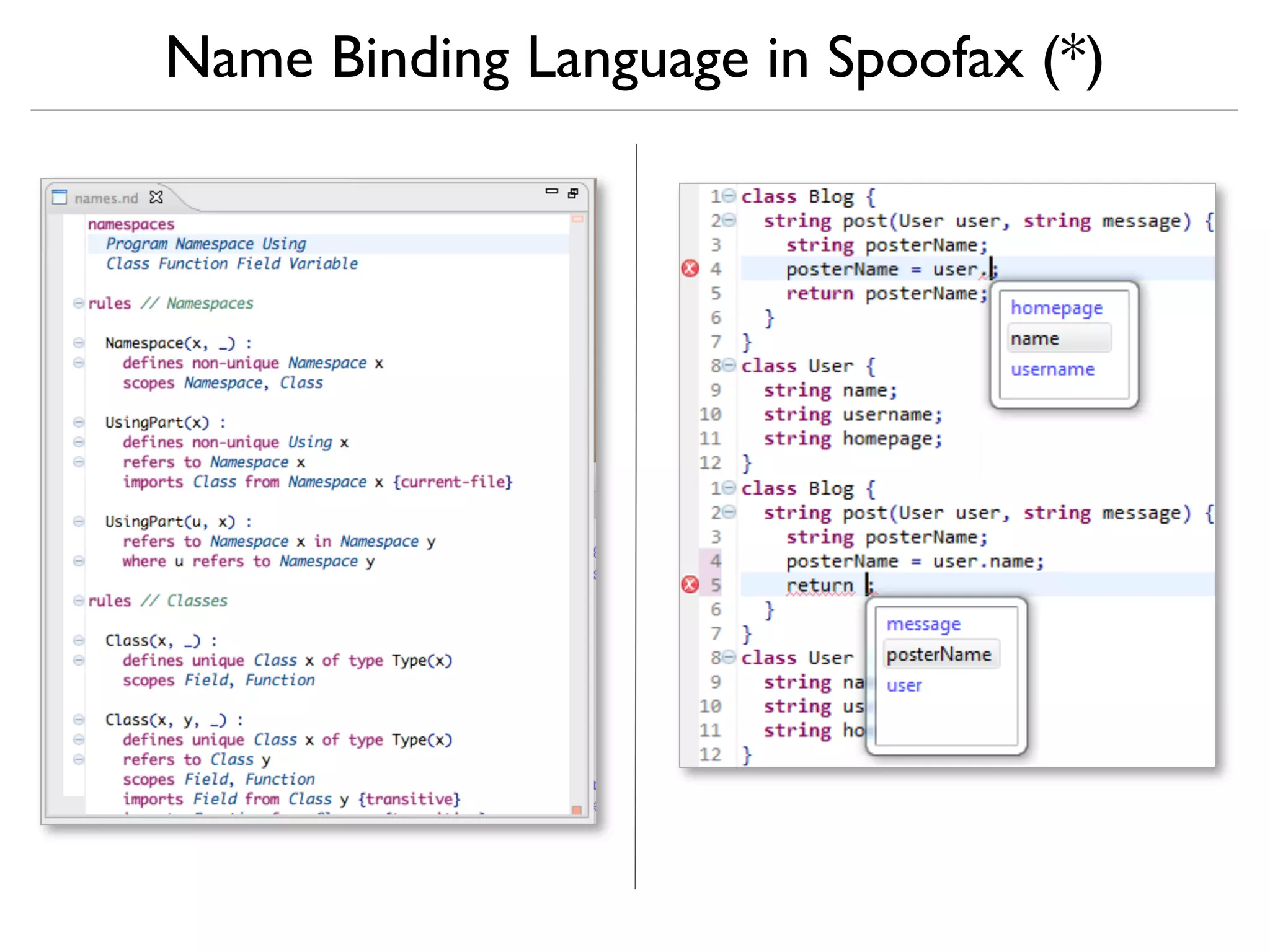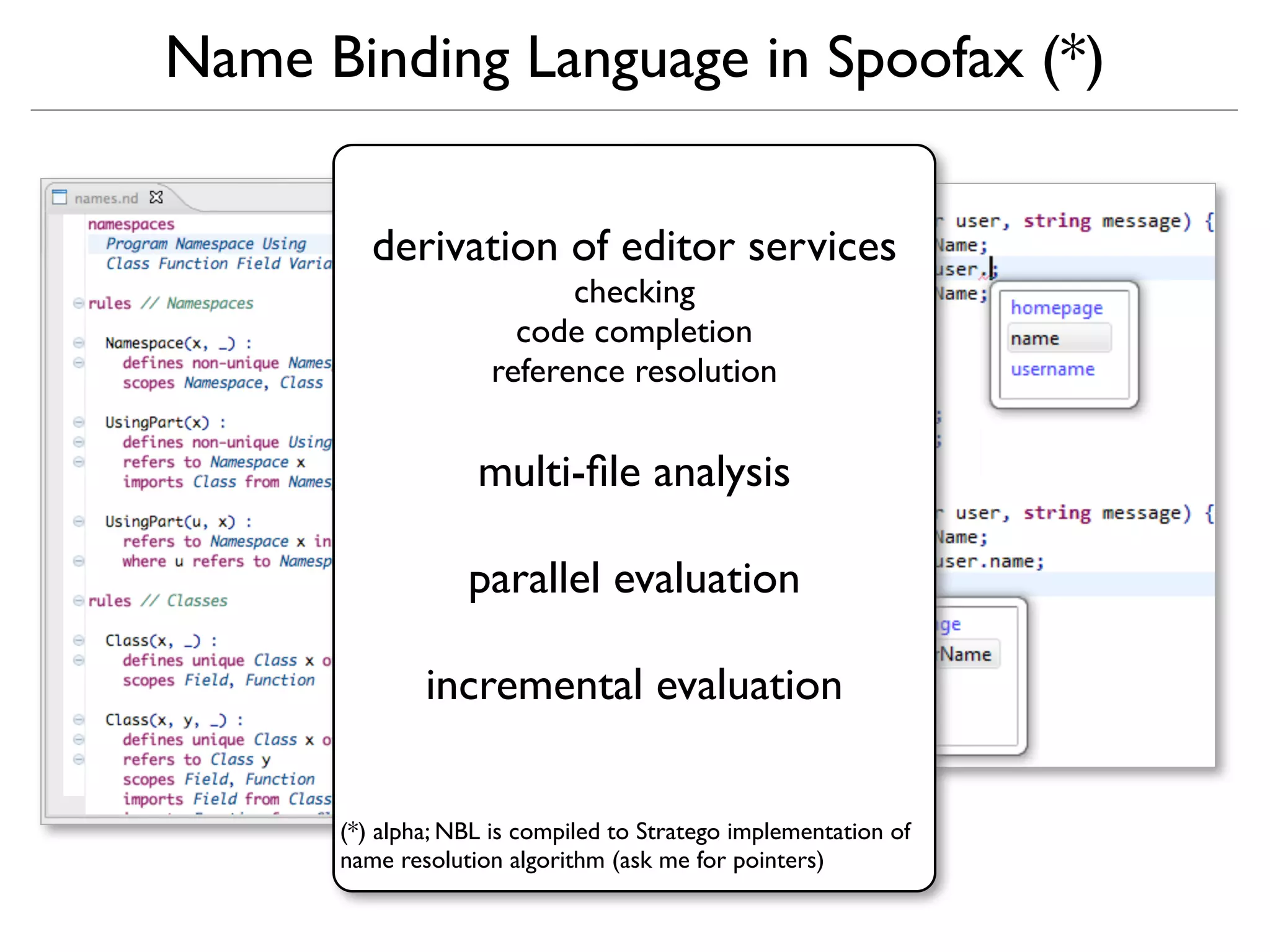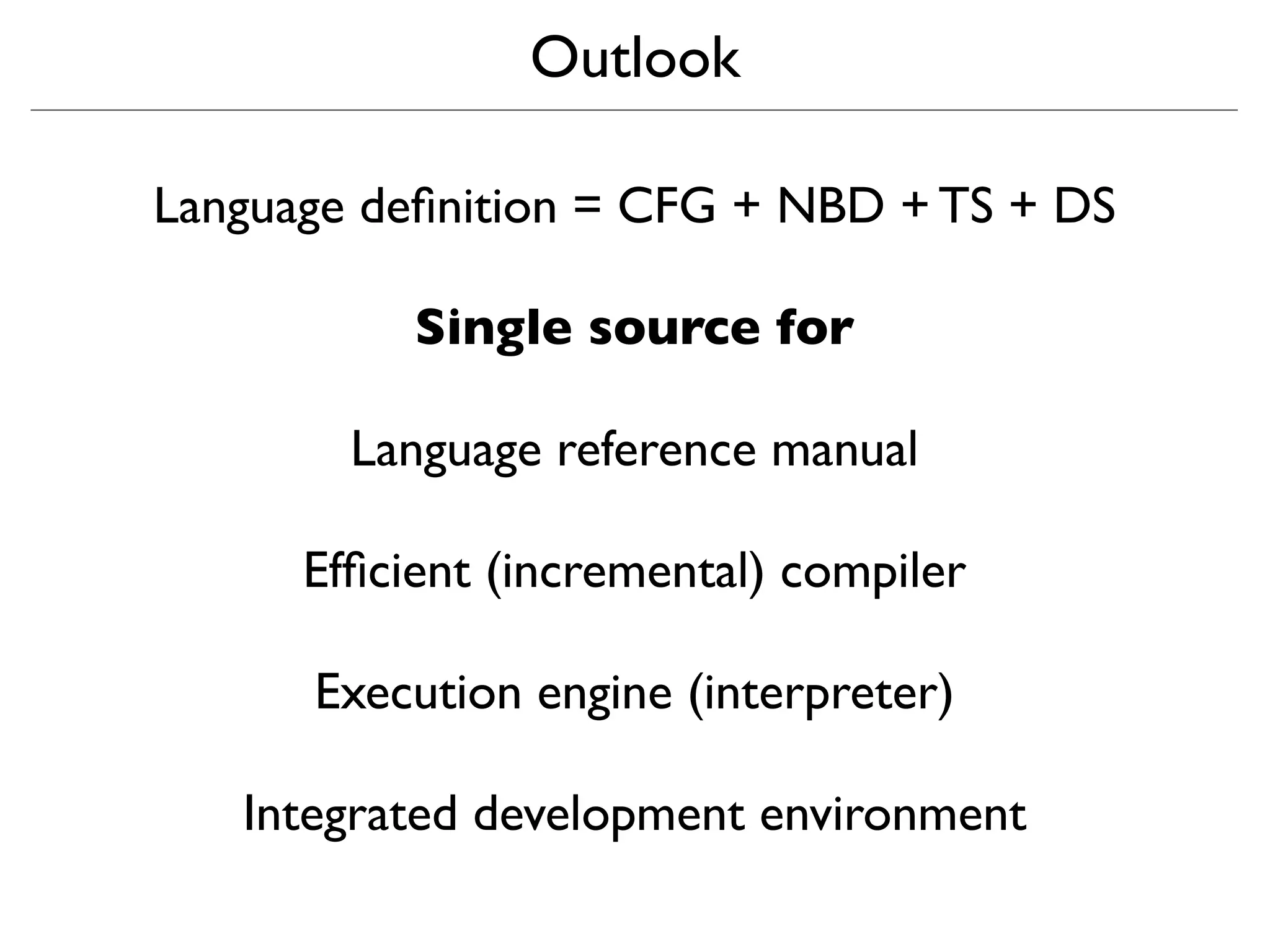The document proposes a language-parametric approach to name resolution based on declarative name binding and scope rules, where name binding and scope are defined using a declarative syntax that is independent of any concrete programming language. It describes how name binding and scope can be defined using context-free grammars annotated with attributes to specify definitions, references, and scopes. The approach aims to support name resolution tasks like reference resolution, code completion, and refactoring in a modular way that is reusable across multiple languages.
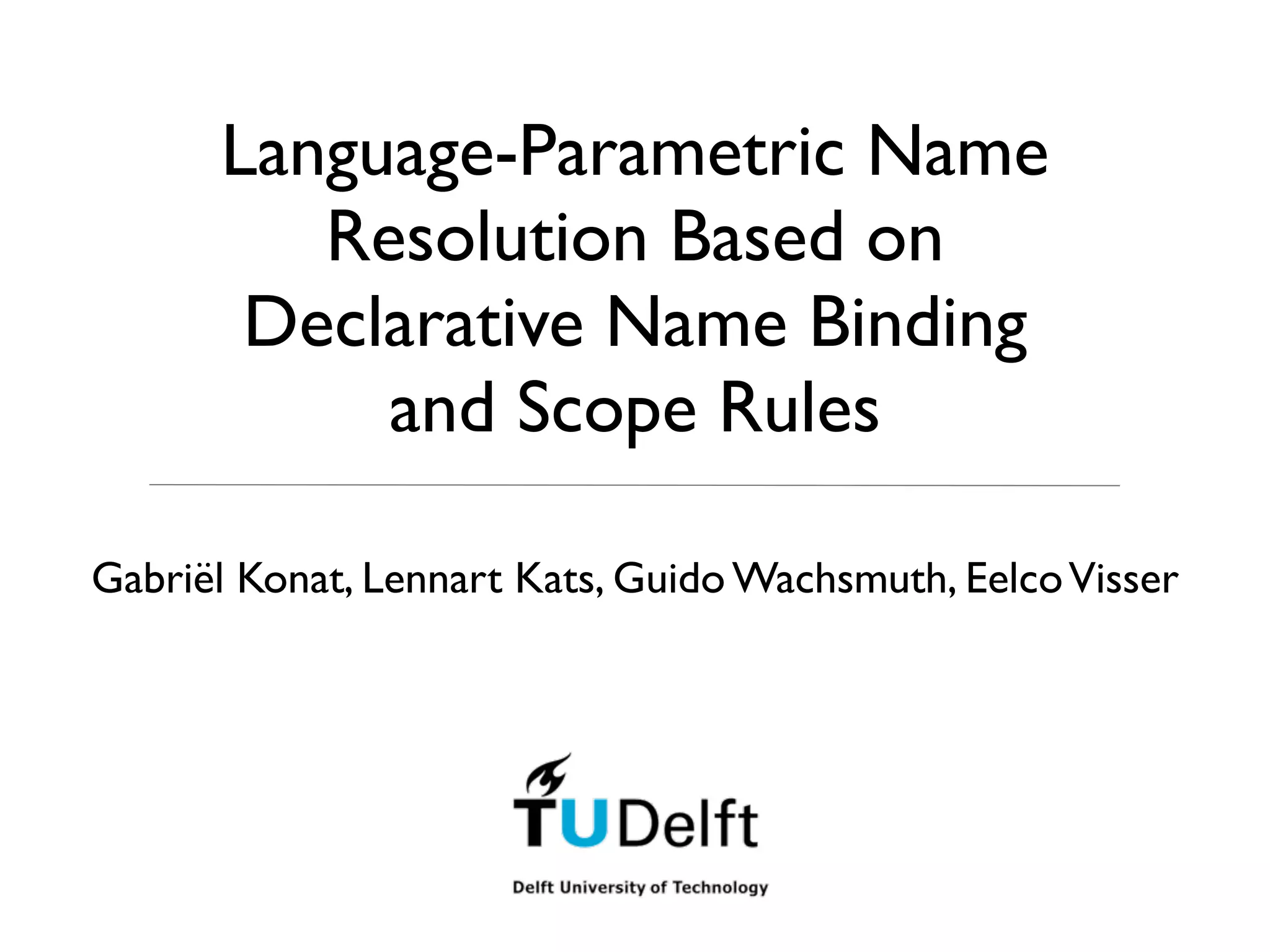
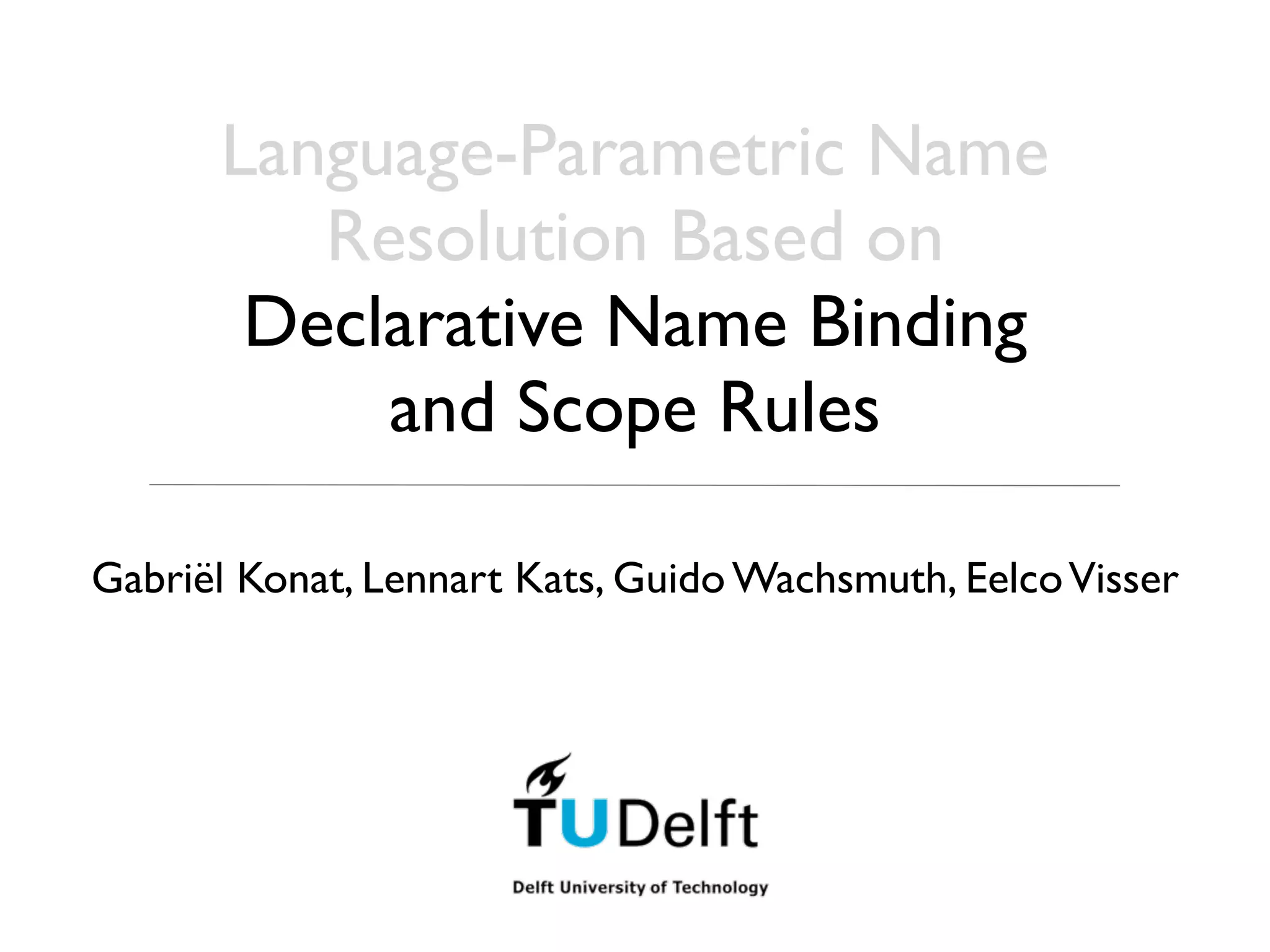
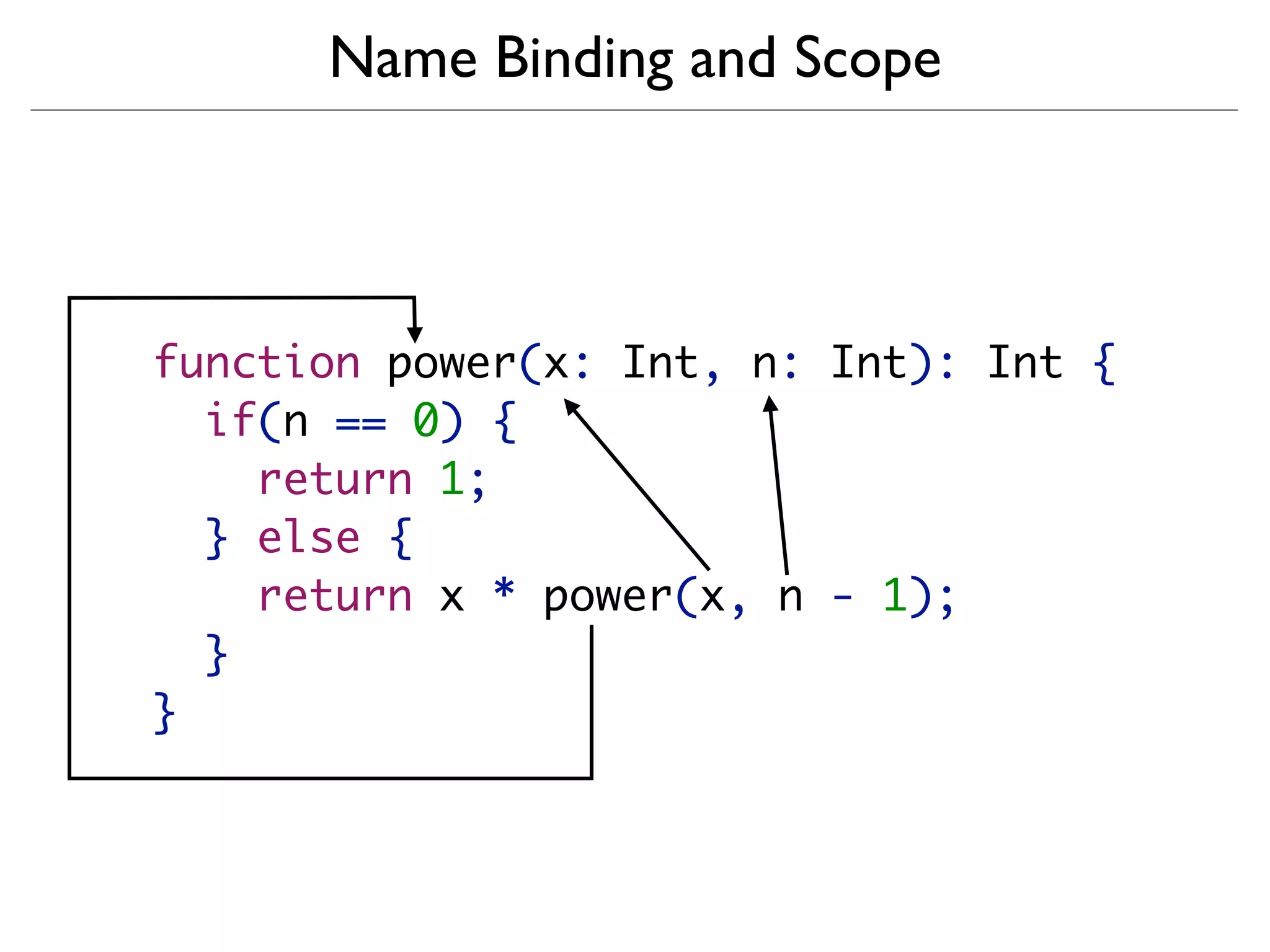
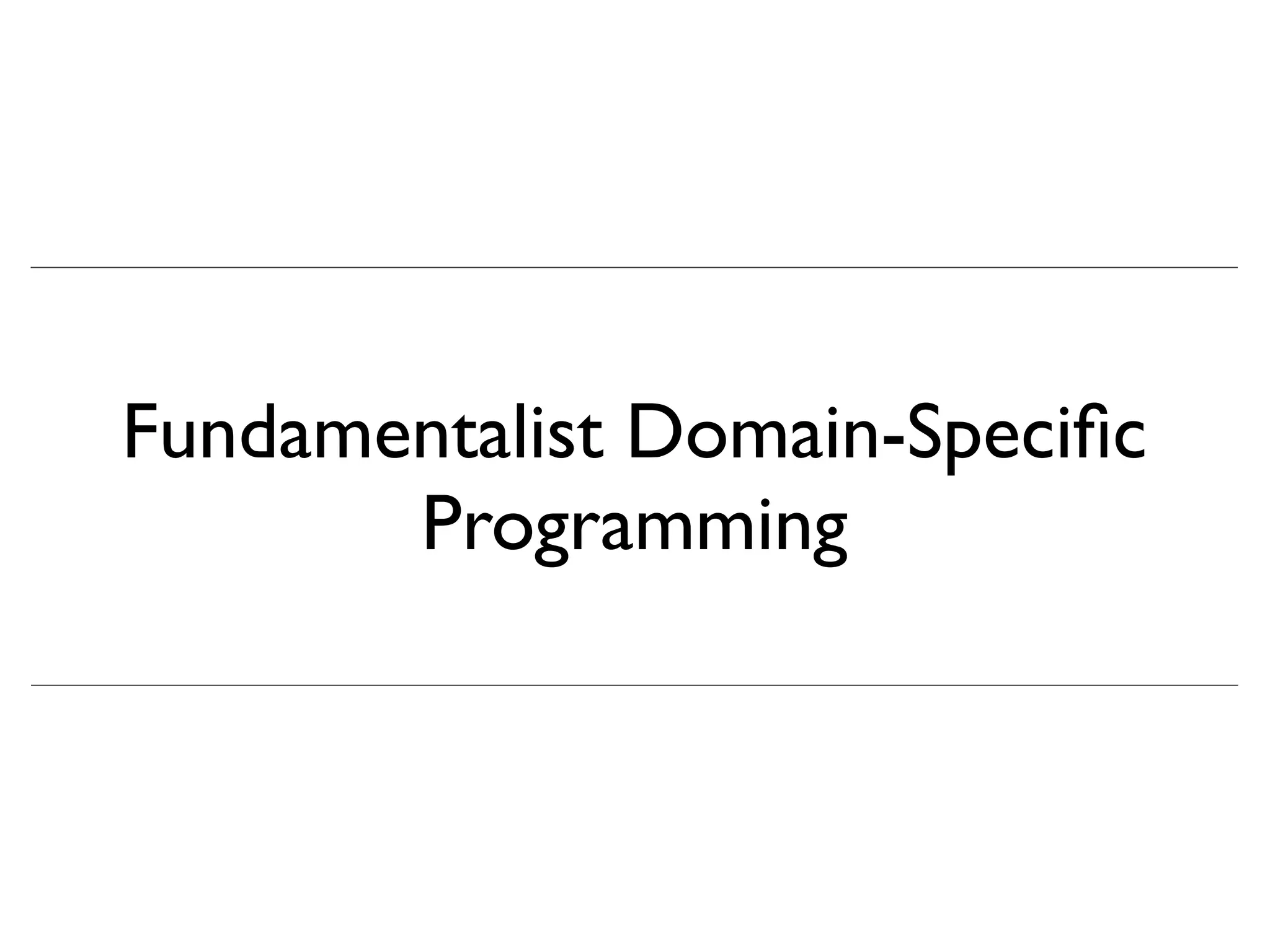
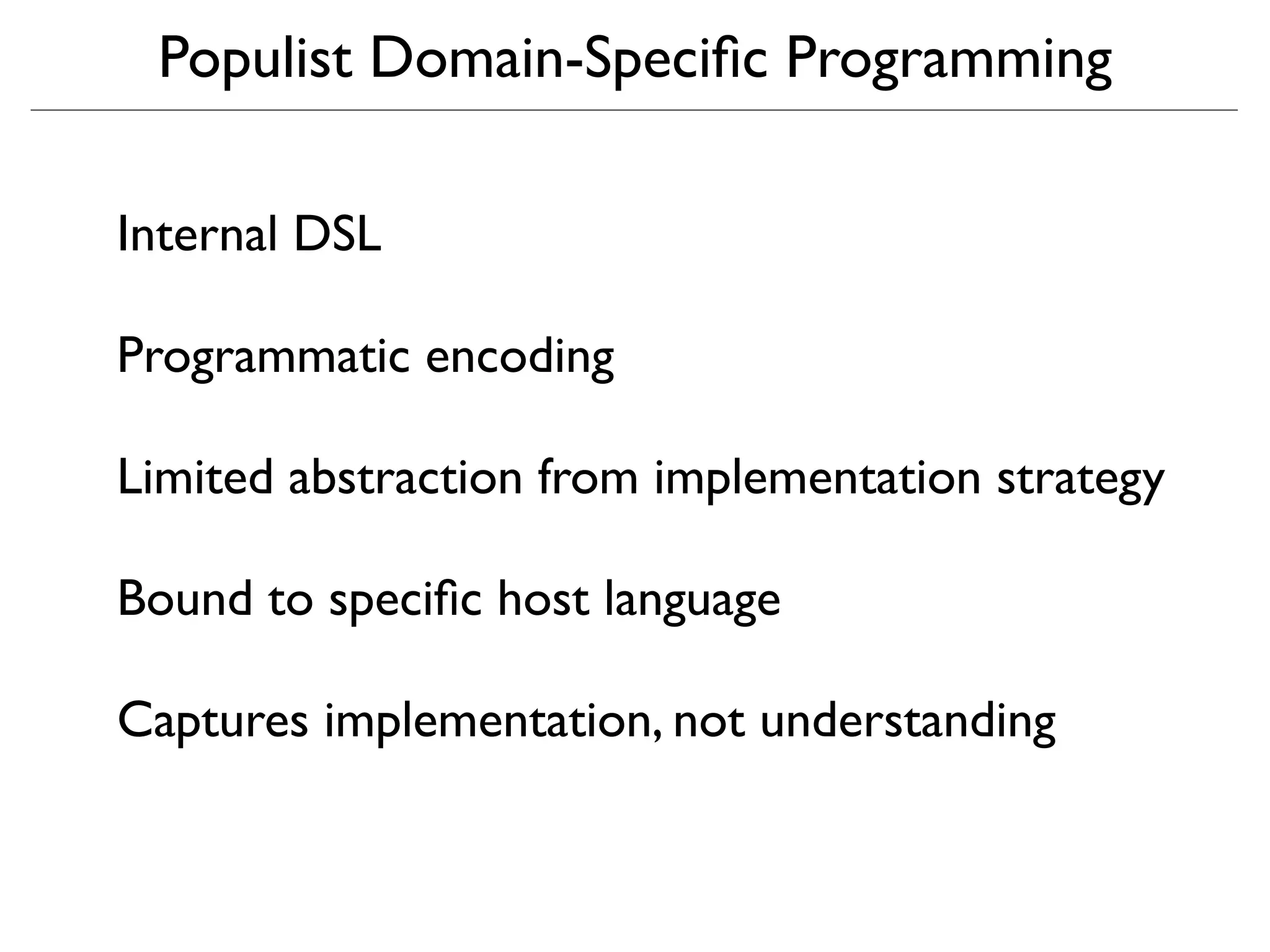

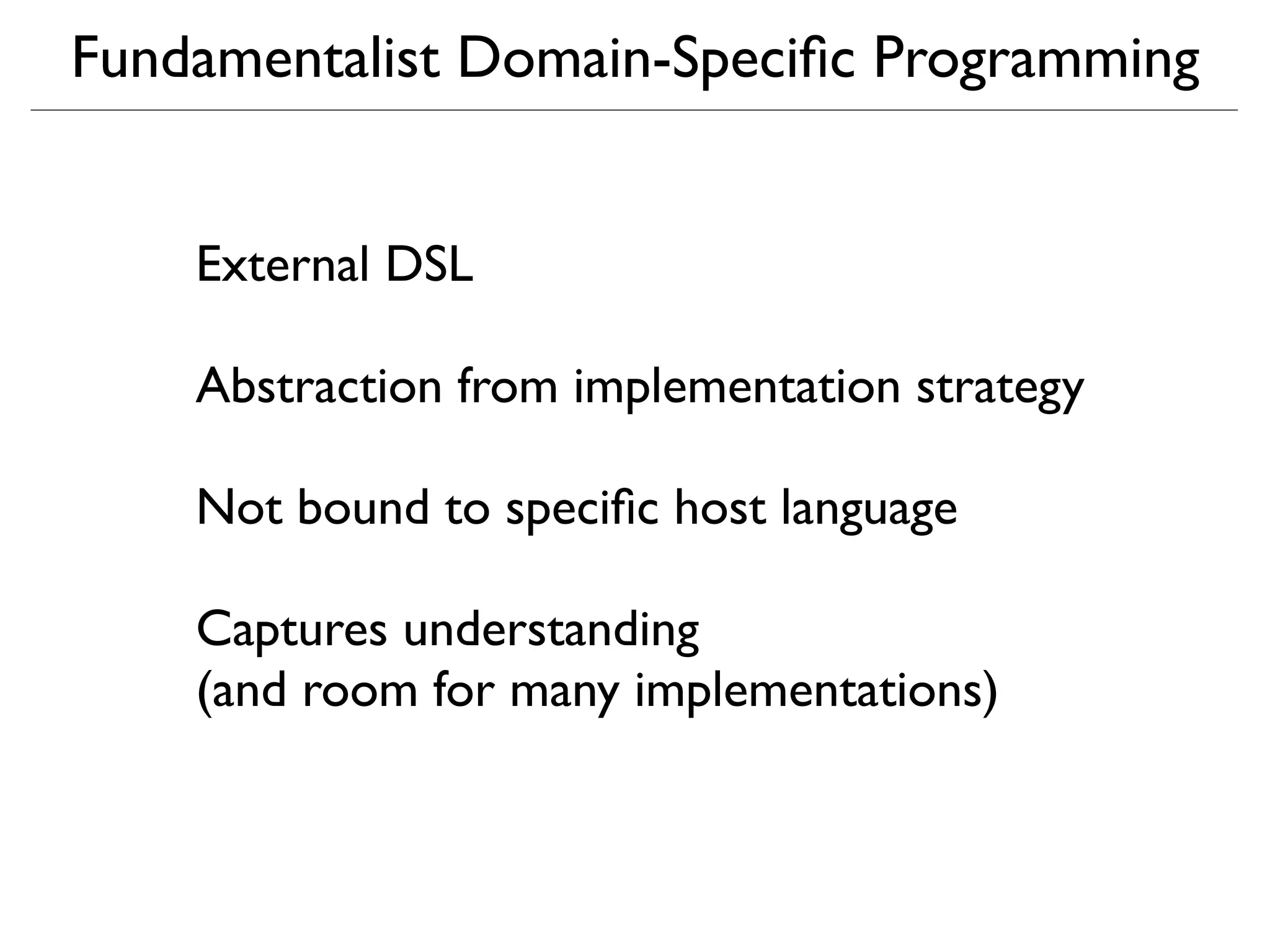

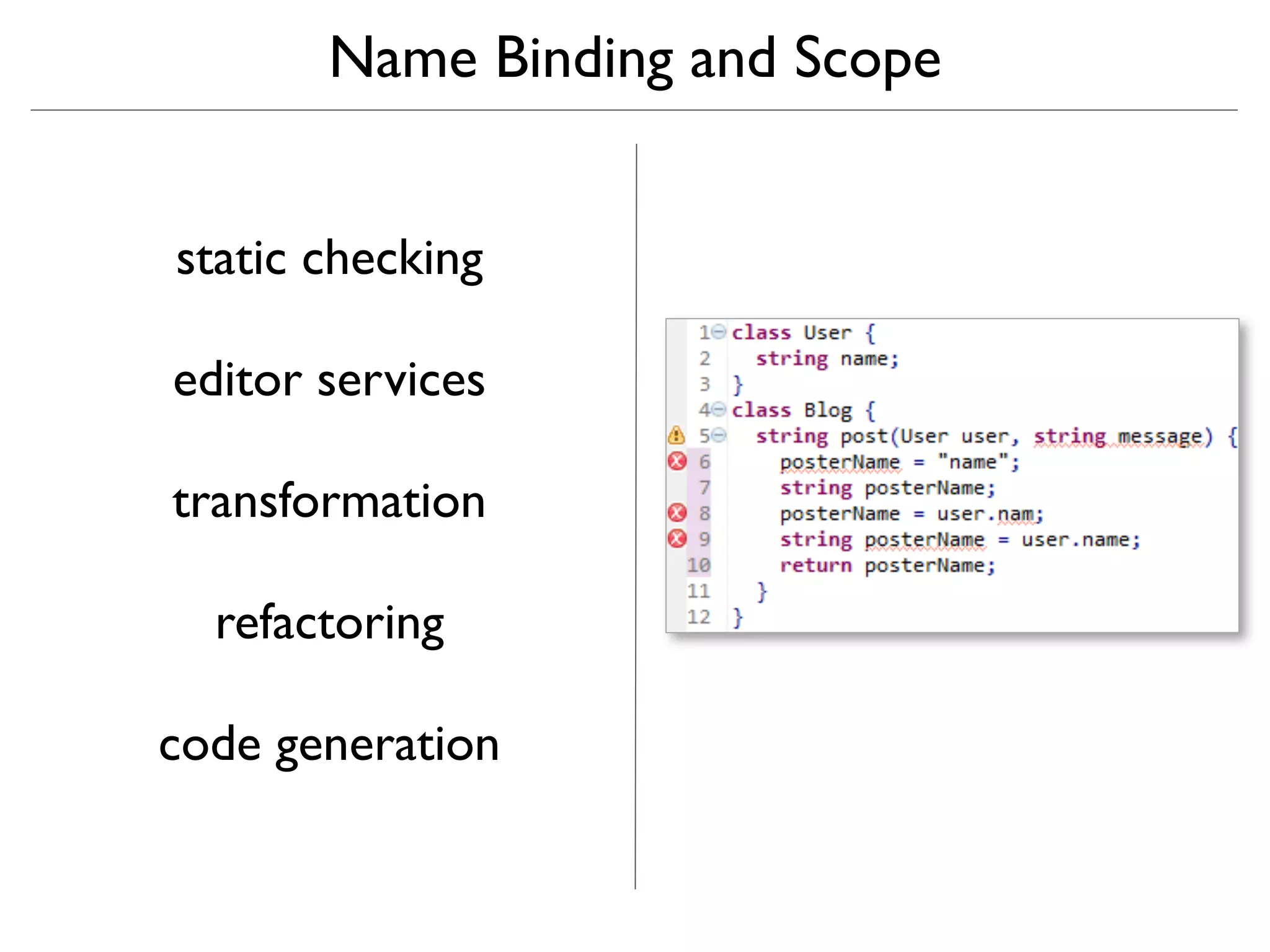
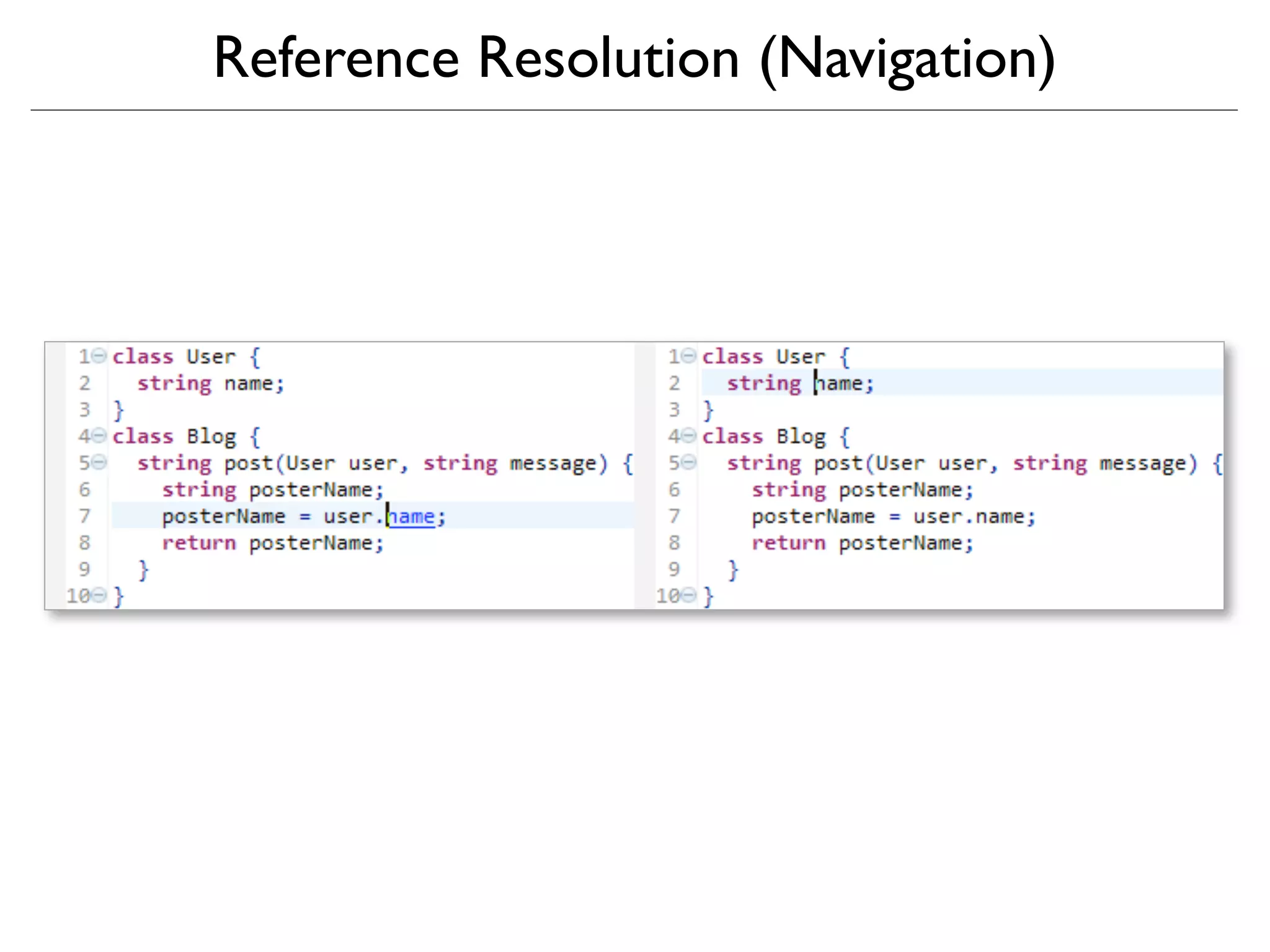
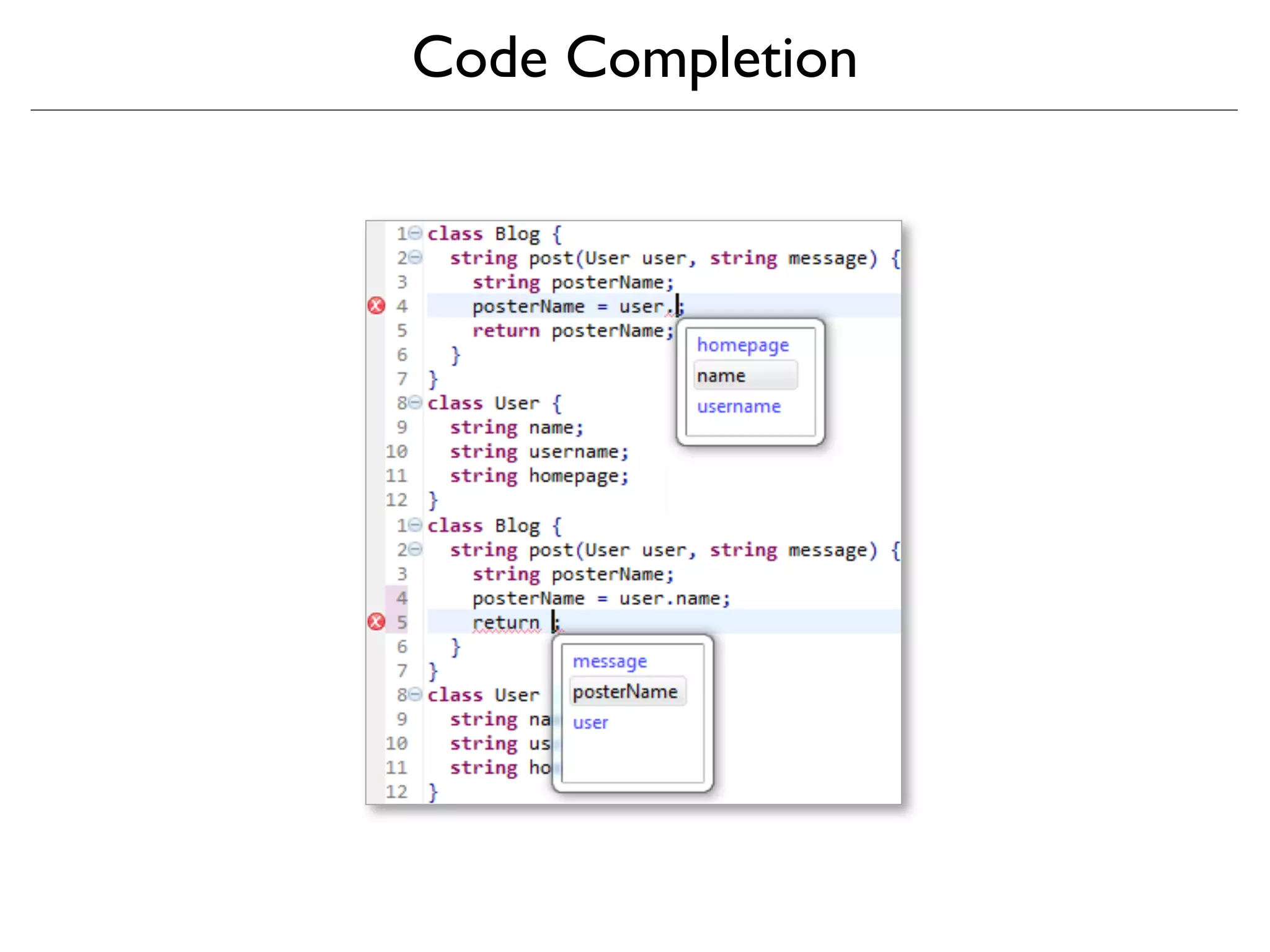
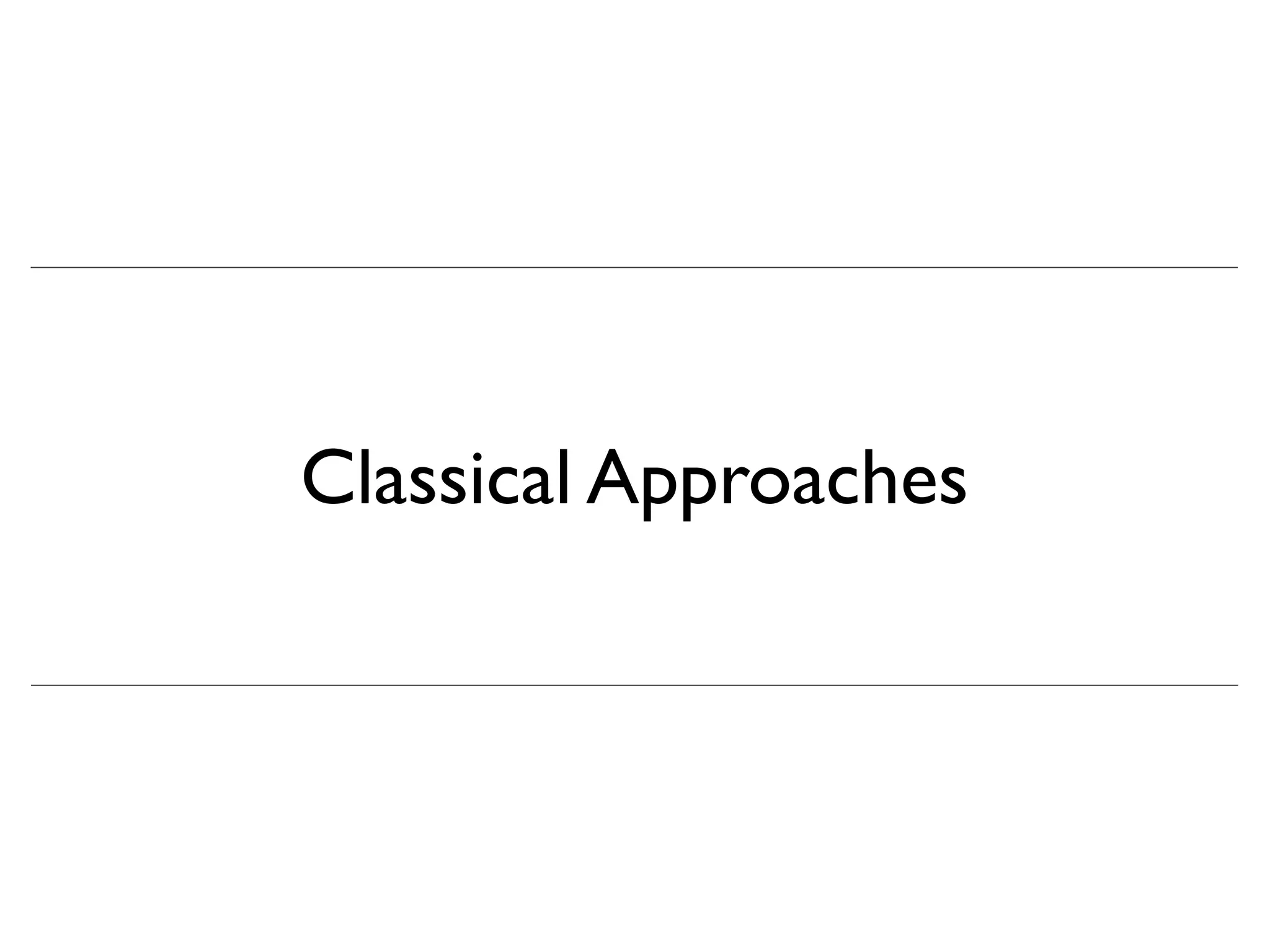
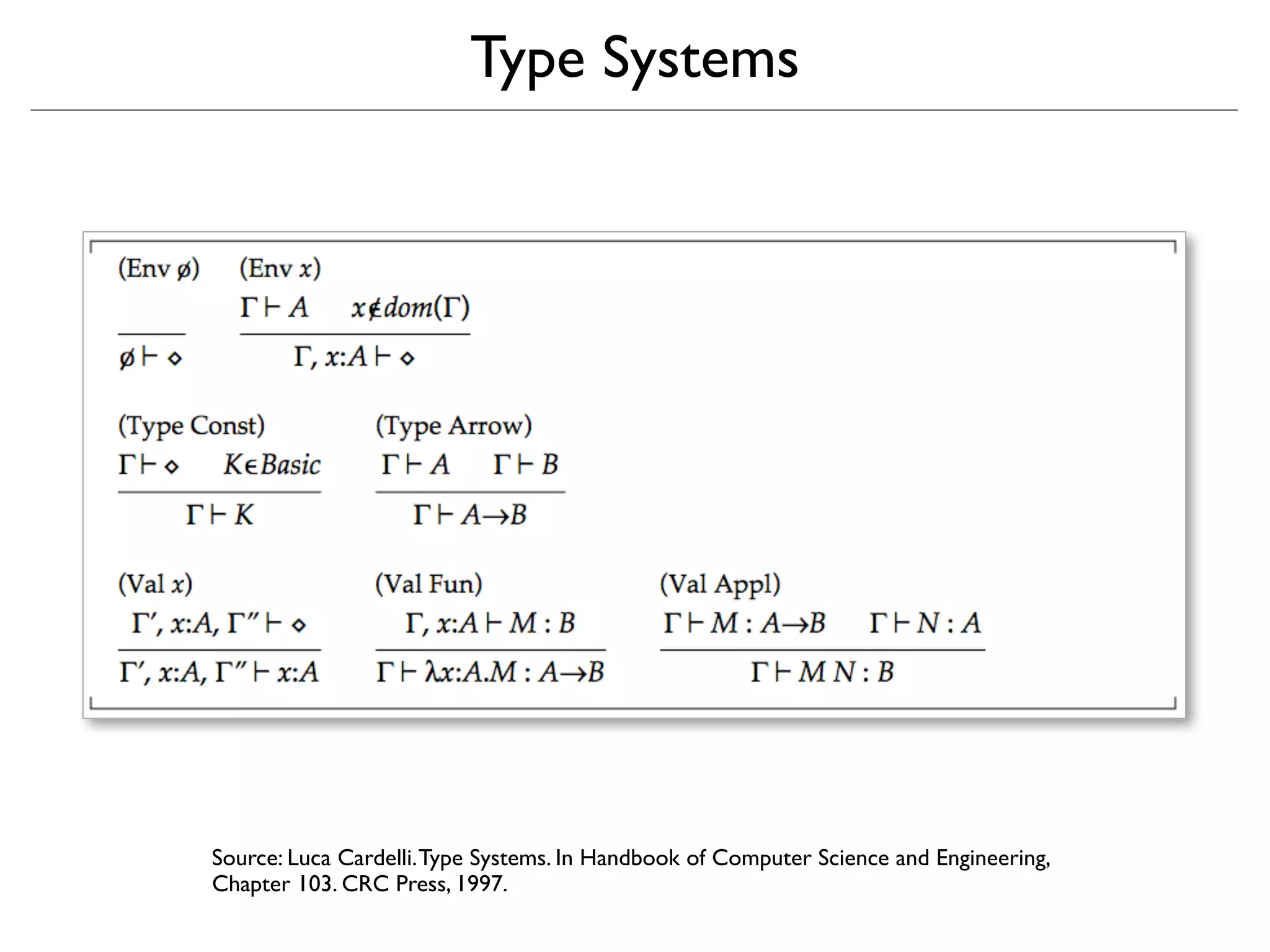
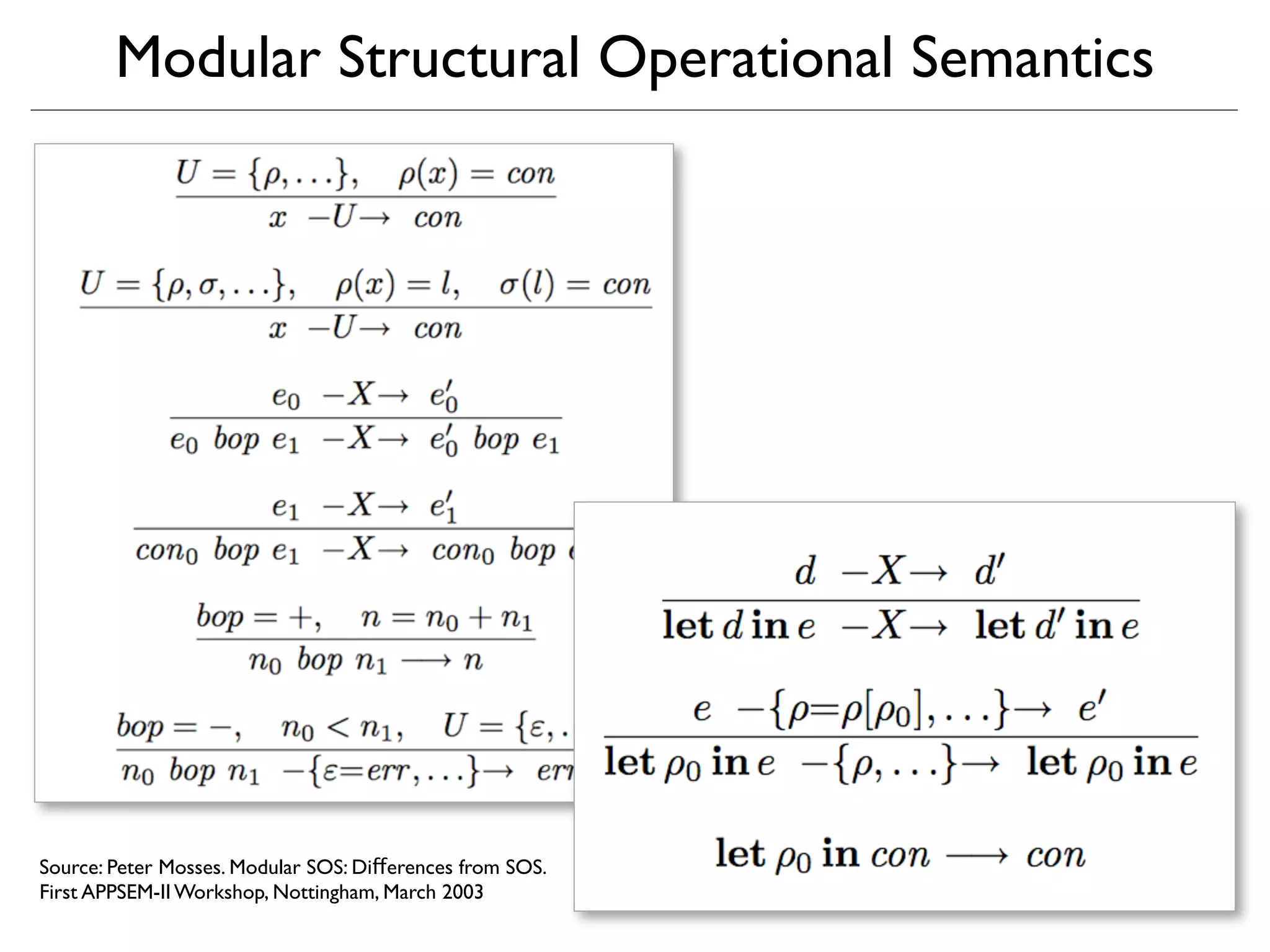
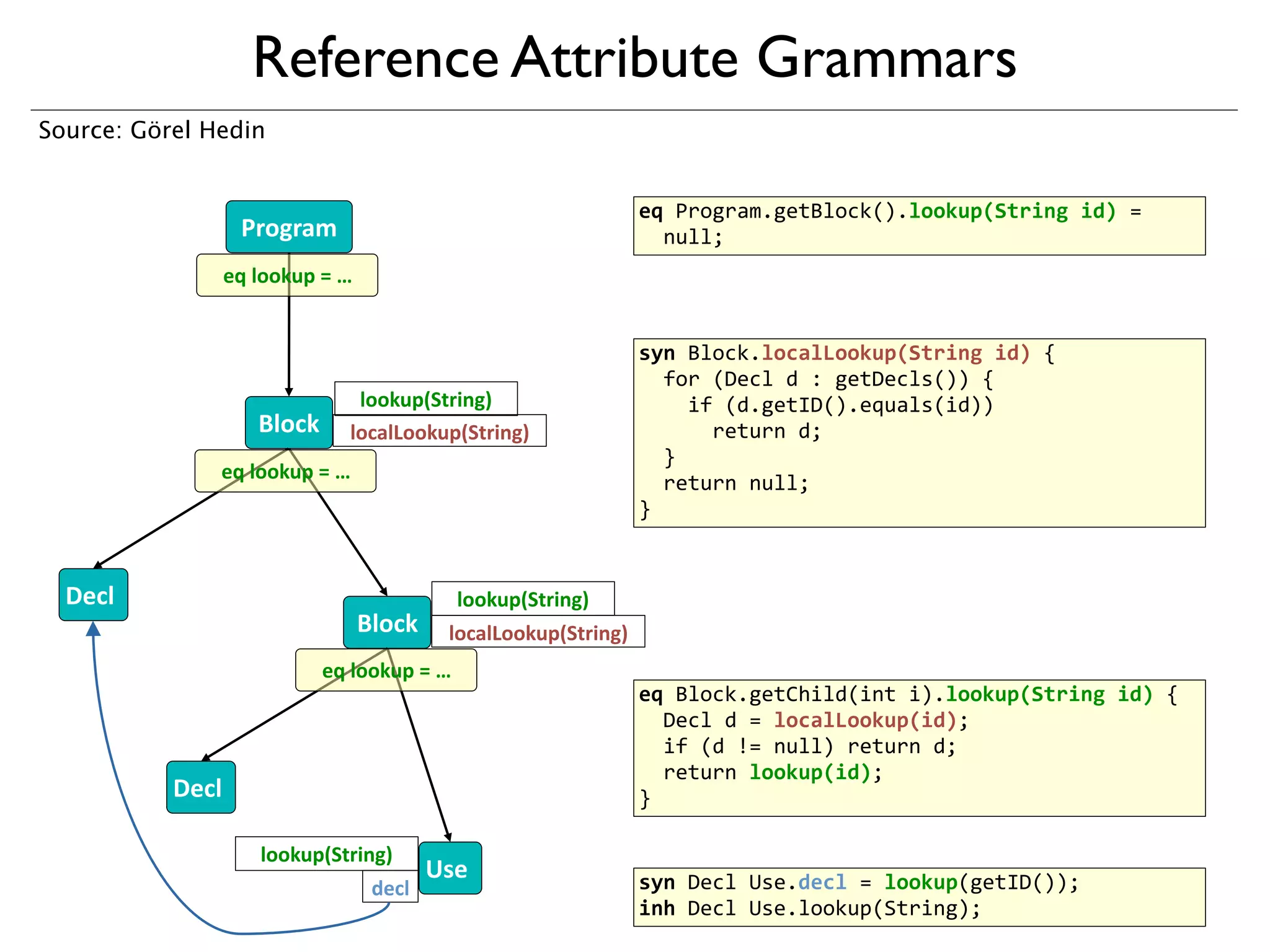
![Rewriting Strategies with Dynamic Rules
rename-top = alltd(rename)
rename :
|[ var x : srt ]| -> |[ var y : srt ]|
where y := <add-naming-key(|srt)> x
rename :
|[ define page x (farg1*) { elem1* } ]| ->
|[ define page x (farg2*) { elem2* } ]|
where {| Rename
: farg2* := <map(rename-page-arg)> farg1*
; elem2* := <rename-top> elem1*
|}
rename = Rename
add-naming-key(|srt) : x -> y
where y := x{<newname> x}
; rules (
Rename : Var(x) -> Var(y)
TypeOf : y -> srt
)](https://image.slidesharecdn.com/nbl-sle12-120928072437-phpapp02/75/Declarative-Name-Binding-and-Scope-Rules-16-2048.jpg)
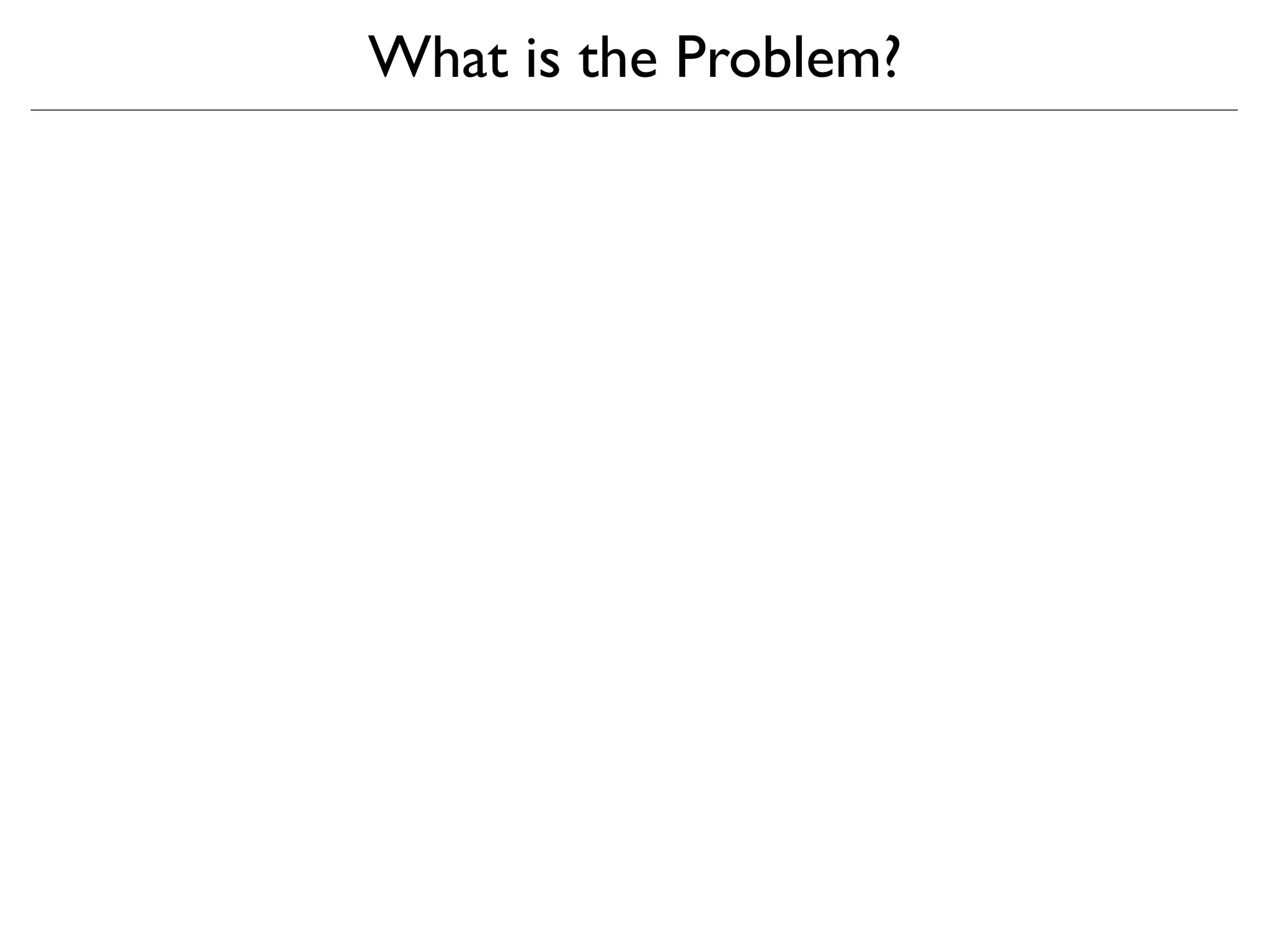
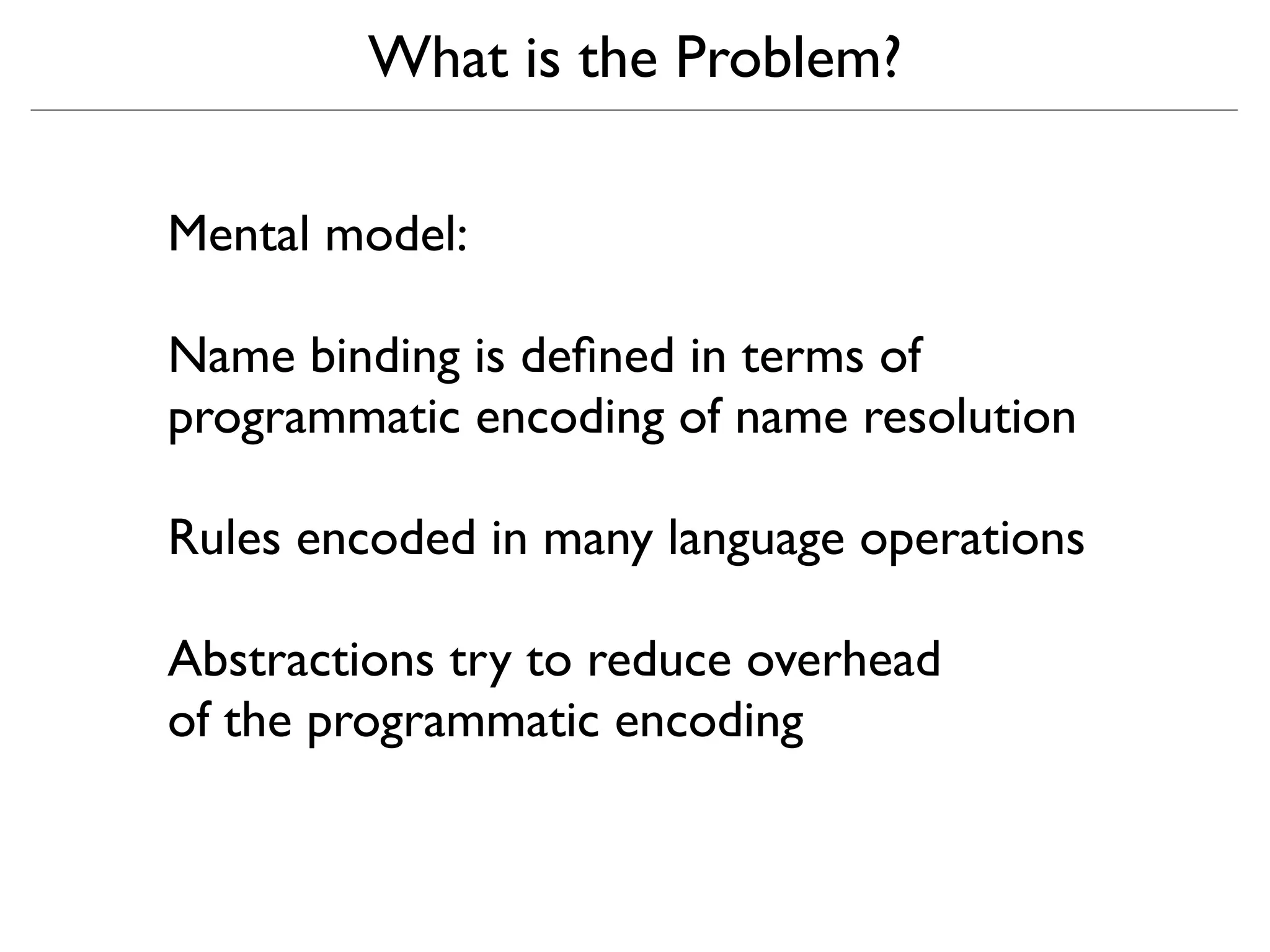
![Name Binding in Xtext
grammar DomainModel with Terminals
Domainmodel :
elements += Type*
;
Type:
DataType | Entity
;
DataType:
'datatype' name = ID
;
Entity:
'entity' name = ID ('extends' superType = [Entity])? '{'
features += Feature*
'}'
;
Feature:
many?='many'? name = ID ':' type = [Type]
;](https://image.slidesharecdn.com/nbl-sle12-120928072437-phpapp02/75/Declarative-Name-Binding-and-Scope-Rules-19-2048.jpg)
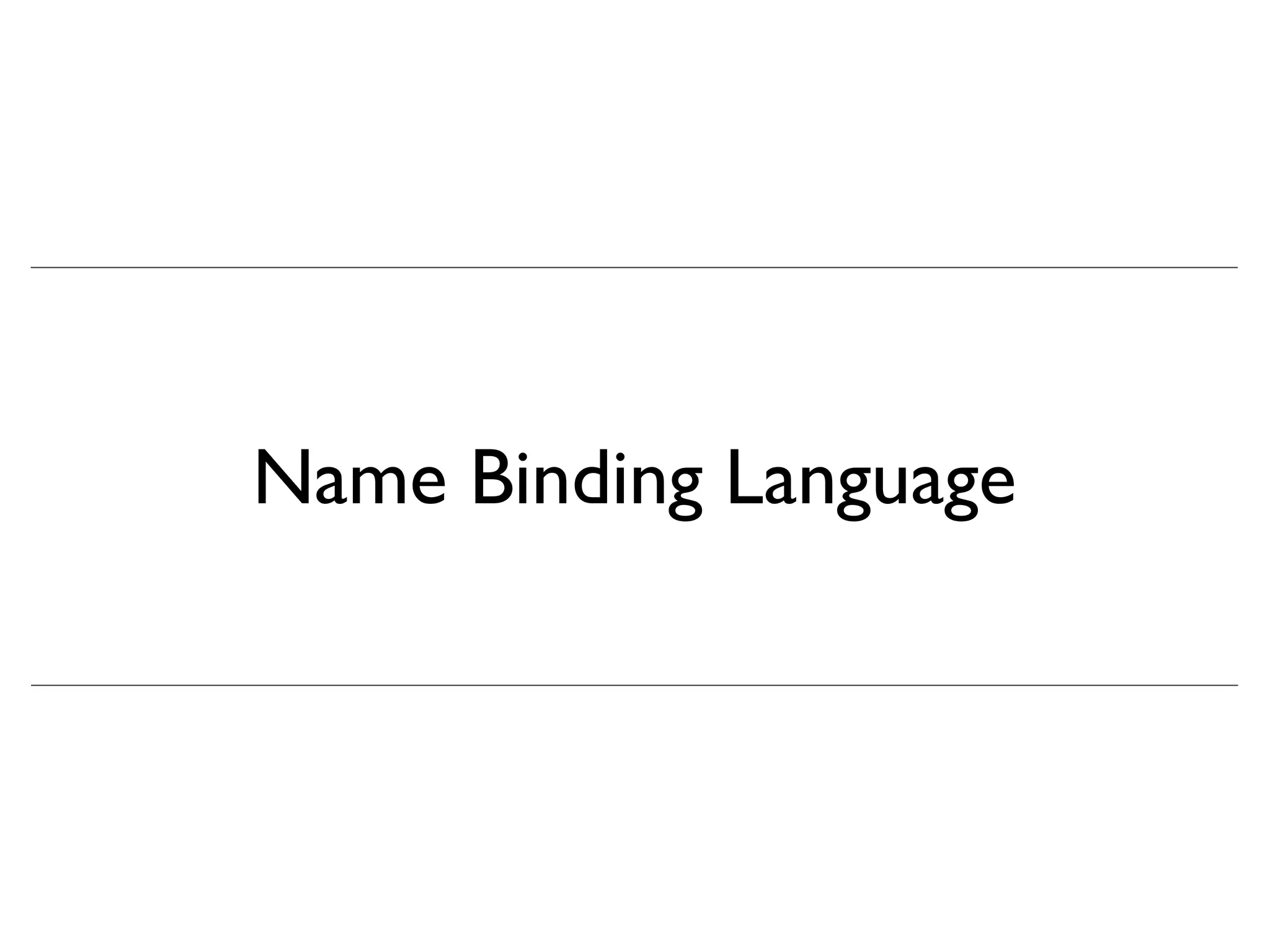
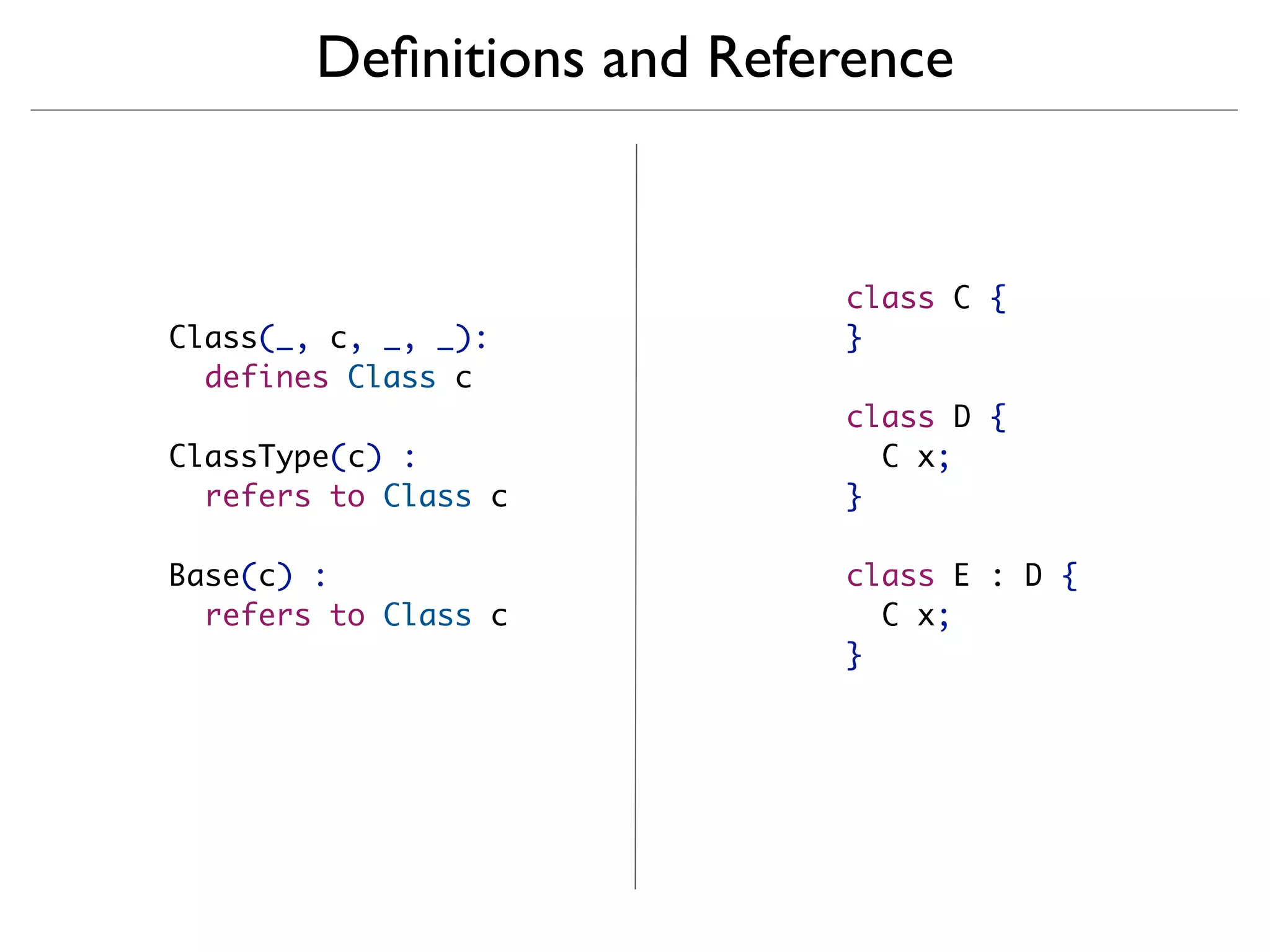

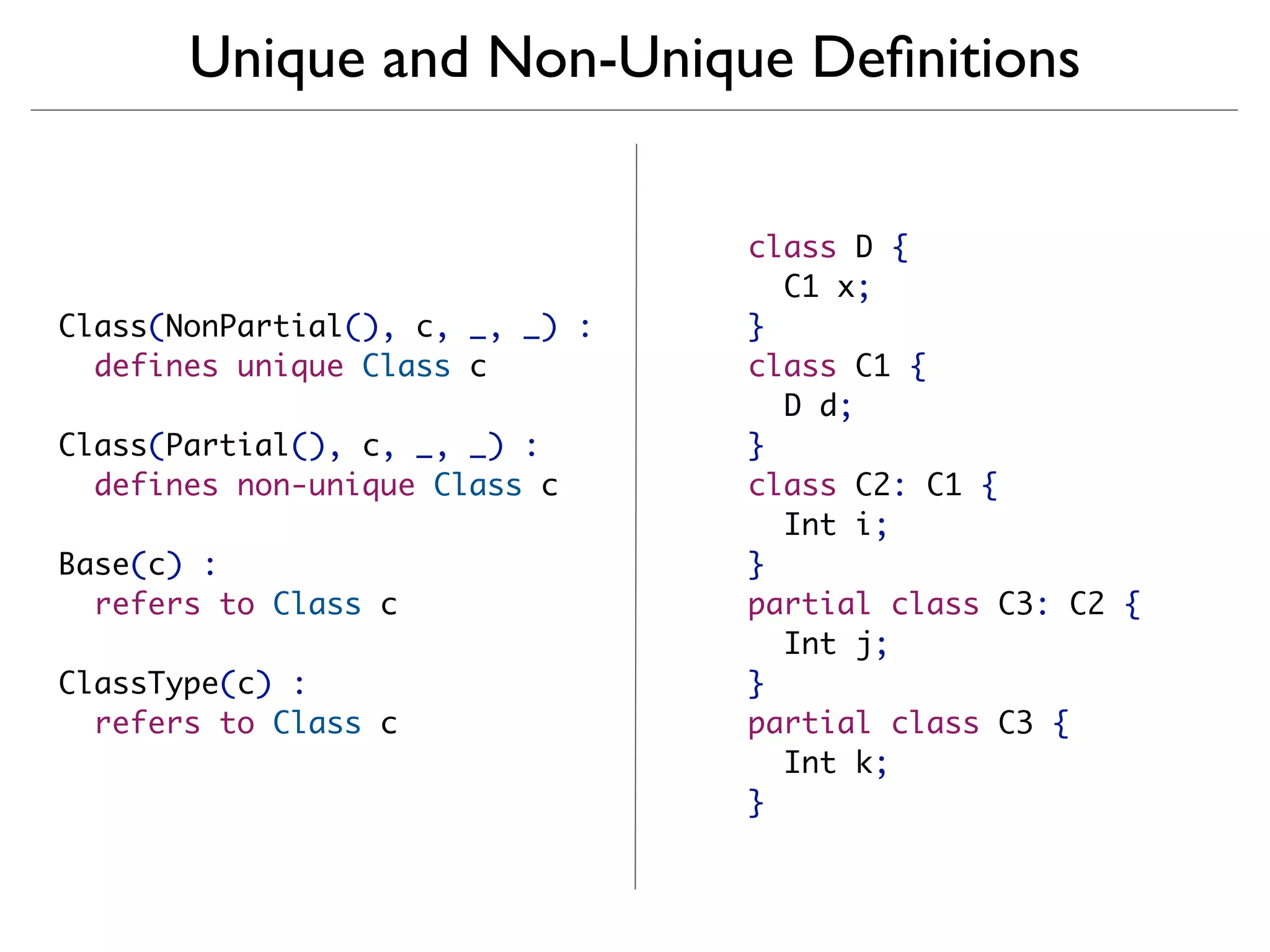
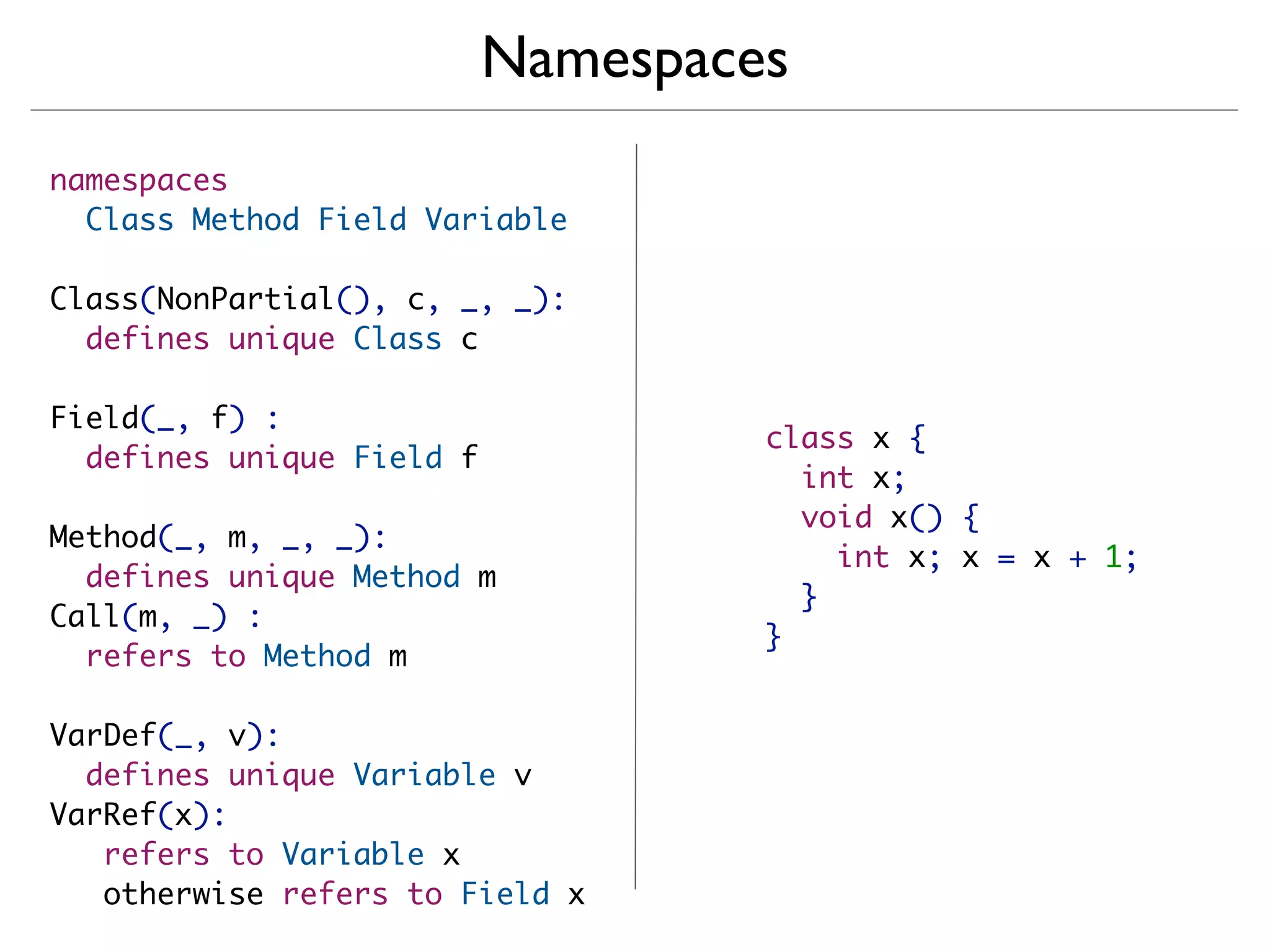
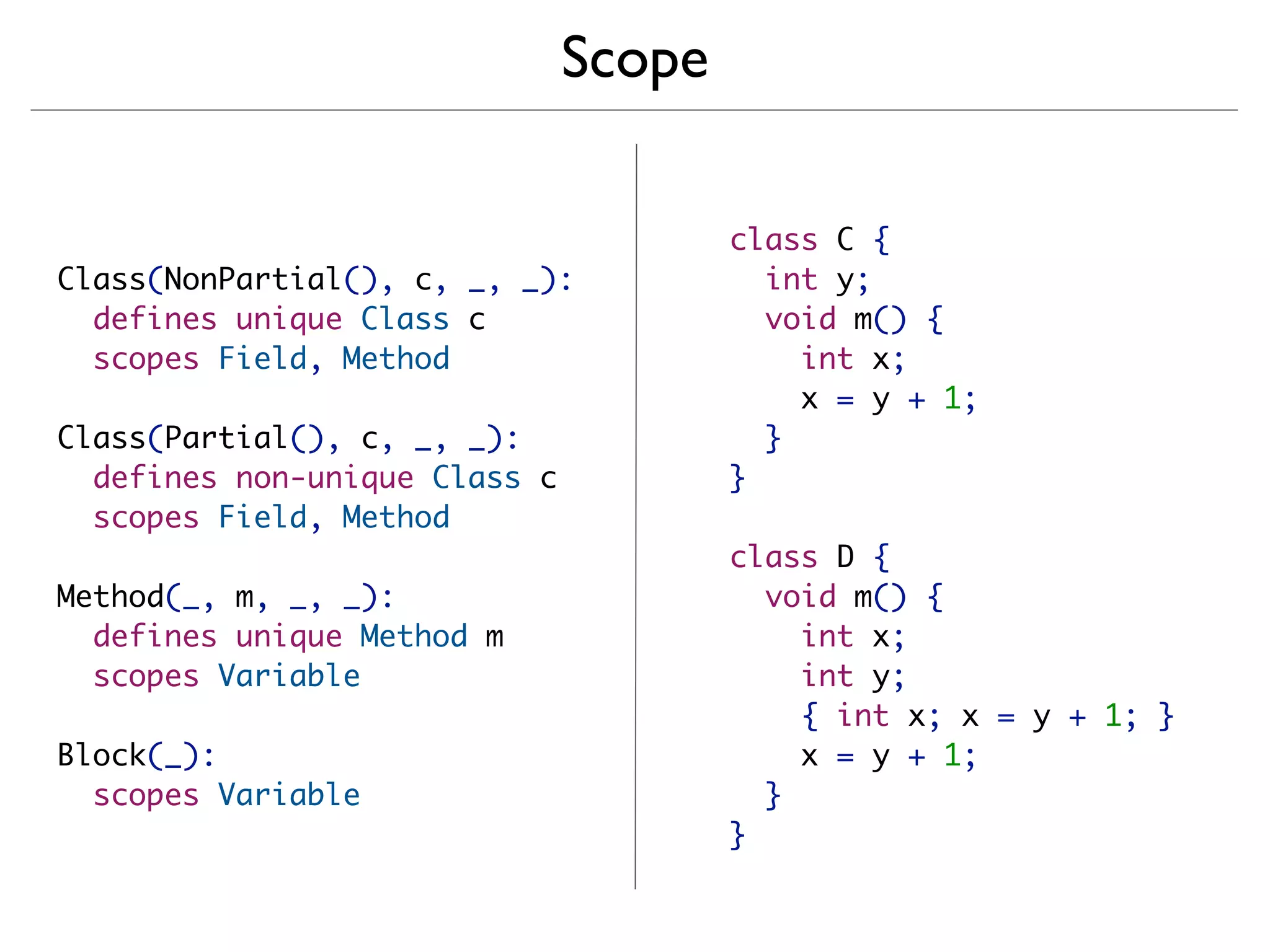
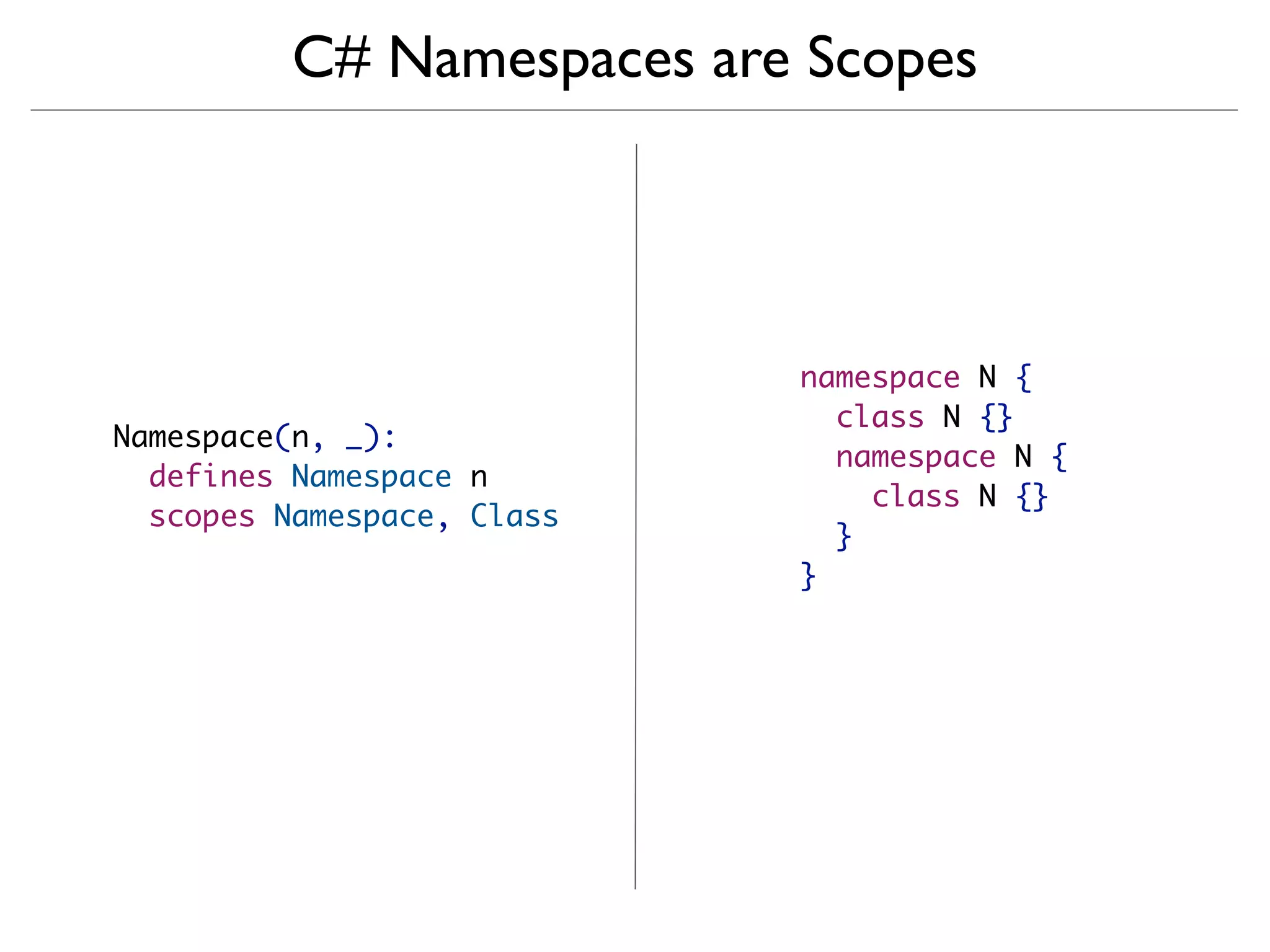

![Definition Context
class C {
Foreach(t, v, exp, body): void m(int[] x) {
defines Variable v foreach (int x in x)
of type t WriteLine(x);
in body }
}](https://image.slidesharecdn.com/nbl-sle12-120928072437-phpapp02/75/Declarative-Name-Binding-and-Scope-Rules-28-2048.jpg)
